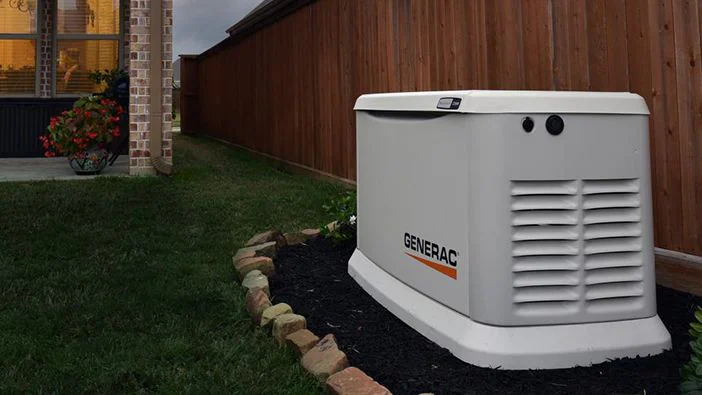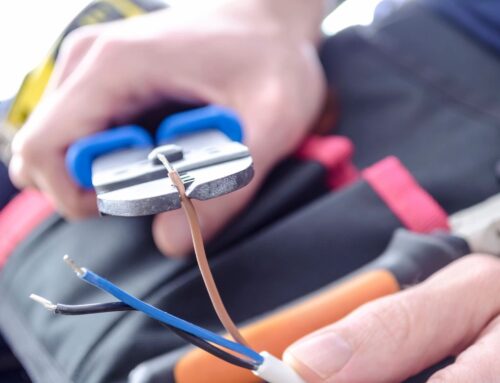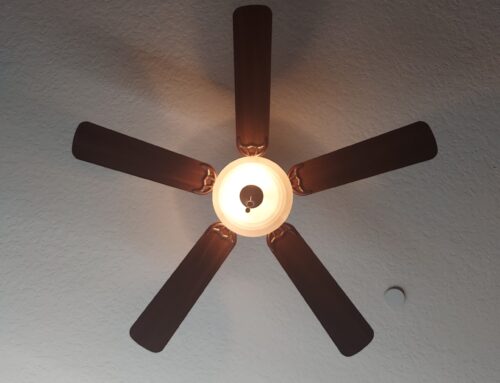When the temperatures dip in Northern Georgia, a reliable source of heat is essential.
Power outages during cold weather can be stressful, leaving many homeowners wondering, “Can I run my furnace off of a back-up generator?” The short answer is yes, but there are a few key factors to consider.
Here’s everything you need to know about keeping your furnace running with the help of a back-up generator.

Why Use a Back-Up Generator?
Back-up generators provide peace of mind during power outages, ensuring you can maintain essential home functions. For Northern Georgia homeowners, a reliable generator is particularly useful during winter storms or periods of extreme weather when losing heat is not just inconvenient but also potentially dangerous.
A generator can power various home appliances, from refrigerators to lights, but can it handle your furnace? The answer depends on the type of furnace, your generator’s capacity, and proper installation.
Types of Furnaces and Generator Compatibility
Before attempting to run your furnace using a back-up generator, it’s important to know what type of furnace you have:
Electric Furnaces
These furnaces require significant power, as they use electricity to produce heat. To run an electric furnace, you’ll need a generator with adequate wattage—typically a larger standby generator rather than a smaller portable option. Always check your furnace’s energy requirements to determine the appropriate generator size.
Gas or Propane Furnaces with Electric Components
Many furnaces in Northern Georgia rely on natural gas or propane to generate heat but still require electricity to power components like fans and controls. These systems are often easier to run on a generator because they consume less electricity compared to fully electric furnaces. A mid-sized generator is often sufficient for these types of furnaces, but proper wattage calculations are crucial, as your generator may also need to power other household essentials.
Oil Furnaces
Oil furnaces are similar to gas furnaces in that they primarily rely on fuel for heating while using electricity for controls and fans. They can generally be connected to a back-up generator if the generator has enough capacity.
How to Connect a Generator to Your Furnace Safely
If you’re planning to run your furnace off of a back-up generator, proper preparation and connection are essential to ensure both safety and efficiency.
- Determine Your Furnace’s Power Requirements
Check your furnace’s manual or contact the manufacturer to find the exact wattage required. Add this to the wattage of any other devices you plan to run during an outage to ensure your generator has enough capacity. - Choose the Right Generator
Homeowners in Northern Georgia usually select one of these two types of generators:
Portable Generators- Smaller and more affordable, portable generators are suitable for short power outages but might have limited capacity. Ensure your generator’s output matches or exceeds your furnace’s energy demands.
Standby Generators – These permanently installed generators automatically power your home when an outage occurs. While more expensive, standby generators can handle larger loads and provide a more reliable energy solution during extended outages. - Install a Transfer Switch
A transfer switch is crucial when connecting a generator to your home’s electrical system. It prevents back-feeding electricity, which can cause damage to utility equipment and pose safety risks to repair crews. Hire a licensed electrician to install a transfer switch and ensure compliance with local codes. - Consider Professional Installation
If you’ve never used a back-up generator with a furnace before, it’s a good idea to consult a professional HVAC technician or electrician. They can help you calculate power requirements, install the necessary equipment, and test your setup to ensure everything runs smoothly during an actual outage.
Tips for Using a Generator with Your Furnace
To safely and effectively run your furnace off a generator, follow these tips:
- Test Regularly: Test your generator periodically to ensure it’s in good working condition and that it powers your furnace without issues.
- Use High-Quality Extension Cords: If connecting your furnace to a portable generator, use heavy-duty, weatherproof extension cords with the proper wattage rating.
- Monitor Fuel Supply: Keep an eye on your generator’s fuel levels during an outage, especially if you’re relying on it to power your furnace for an extended period.
- Prioritize Essential Appliances: Depending on your generator’s capacity, you may need to limit usage to critical devices (e.g., furnace, refrigerator) to avoid overloading.
Why Investing in a Back-Up Generator is Worth It
For Northern Georgia homeowners, power outages are an unfortunate but common occurrence, particularly during severe weather. A back-up generator ensures that your furnace—and home—stays warm, protecting your family and helping to maintain indoor comfort. By investing in the right generator and setting it up properly, you can minimize the impacts of power outages and enjoy peace of mind all winter long.
Need Help? We’ve Got You Covered
Not sure where to start? A licensed professional can help determine the best generator for your needs, calculate your furnace’s power requirements, and handle safe installation. Keep your Northern Georgia home warm and prepared for anything! If you’re ready to explore reliable back-up generators or need assistance setting up your system, contact us today for expert advice. Don’t wait until the next storm hits—get started now!



